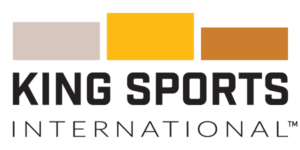Guidance for the new physical preparation coach – Respect & research
In 1999 I wrote the first edition of the book ‘So You Want to Become a Physical Preparation Coach’. It was the first and only book of it’s kind at the time offering professional and business guidance to physical preparation coaches. Twenty years later this guidance is as relevant as it was then. However little advancements have occurred in the ensuing 20 years in the professional practices in our industry – physical preparation.
There is a lot about the legal profession I don’t like. For example their example to ‘churn’ work, which means to generate unnecessary billable hours. But here are a few things that I like. For starters their professional rates. Even the lowest, least experienced lawyer is billed a triple-figure hourly rate. But the one aspect I envy the most is their respect of seniority.
Now I believe respect needs to be earned, and more years in the industry does not equate or guarantee competency. But what it does do is allow a young, inexperienced professional the opportunity to study the track record of the more experienced person, and at the very minimum communicate with them with respect to what they have learnt about their professional journey.
I just got off the phone with a young ‘high-performance coach’. I recently was hired by an athlete form within a team he is employed to service, and he had respectively asked me to call him. So I did. When he asked me to outline what training I was doing in the various physical qualities, I asked a few key questions.
How many years have you been in the industry? A year or two. Right.
Have you heard of my name before? Ah, no.
Have you read any of my published works? Ah, no.
Okay. Now this young man lives within a 30 km radius of where I reside for parts of the year. His professional academic training was probably done in the same city mine way. He is on his way to a PhD, God bless him. But this is not how you optimize the opportunity you get when you dialogue with someone with my experience.
In relation to the strength training I am doing, he felt the need to understand it. Was it corrective exercises, as he had been led to believe from the athlete. Now I don’t use that term, and I don’t believe in it. The impact of an exercise is determined by the result on the body, not by a pre-determined label. Now Paul Chek and others did a great job of popularizing this term and concept, God bless them. But I don’t use that term. You can be doing one the most ‘classic’ ‘corrective exercises’ and it could be damaging the athlete. So how can we dialogue on terms we don’t share common ground on?
Was my speed work maximal or technique-based? Now we are in the few week of training and he knows that. My training approach to speed is well documented, from my presentation at the original SAQ seminar in New Orleans in the early to mid-90s to my collaboration with the late Charlie Francis. To my development and championing of the concept ‘reverse periodization’ through to my well-published content about how I make substantial change to athlete’s speed with sub-maximal efforts.
Now I may not be the smoothest person to talk to in circumstances like this. SO when the young man began to justify his questions with the ‘I just have the best intentions of the athlete in mind’ I could not help myself. If you knew what I knew about the athlete, if you could read their bodies like I can, if you knew what you and your colleagues were doing to them by act or omission that was damaging them and decreasing their athletic – you would either quit really quickly or get better really quickly.
So we then went to ‘I need to know what the athlete is doing in training because if they get injured I will get blamed’. Great theory, but again, if you knew what I knew about their injury potential and the relationship between what is being done to them or not being done to them in training and their injury potential, you would not sleep at night.
Then the request to meet in person next Tuesday to ensure we are on the same page. Now I don’t know about how others operate but warm feelings don’t pay the bills. Who is paying for the meeting? Should the client be expected to pay for what is ultimately going to be a coach education meeting? Should this young coach have a free consultation whilst many around the world put their money on the table by attending seminars or enrolling in courses with their hard-earned cash? I don’t think so.
I raised this point – if I was a second-year law graduate and I was talking to a Queen’s Council (QC) or equivalent, would I be asking them to justify and explain themselves? Probably not! I expect that junior lawyers would respectively take the opportunity to learn – irrespective of who was the primary contact with the athlete (and it is usually the junior lawyer!).
Now maybe I could have done what most might do and submissively answered his question. But in my humble opinion the way this industry conducts itself, including the lack of appropriate respect and deferment to those who have paved the way in this industry, is simply not good enough.
Now I understand the Australian class structure mentally, inherited from our English roots – we are all the same, no one could have risen above. However, that is simply not the case. There are more senior coaches, and some of them actually have something to learn from.
If you want to fulfil your potential, be the best you can be, if you really care for the best interests of the athlete – stop being so average. Step up to a level of professionalism that whilst absent in our industry, is something that would serve our industry.
When I arranged to sit with one of the USA’s most successful ‘strength and conditioning coaches’ Al Vermeil for the first time in the late 1980s I had done my research, and I took respectfully the opportunity to learn. When I collaborated with him regarding an athlete in the Chicago Bulls, I didn’t ask him to explain himself, and I didn’t go to the clichés of ‘I just want the best for the athlete; or ‘we need to be on the same page’; or ‘I will get blamed if they injure themselves’. I could go on ad nausea of these examples. So I am not preaching from hypocrisy. I did exactly what I expected you should do.
Even if the industry doesn’t change, you can change. You, the new professional in physical preparation, can and should be better. And this is just one way to do this. However, the teacher is not likely to appear if the student is not ready….




